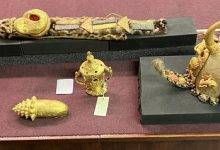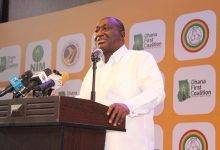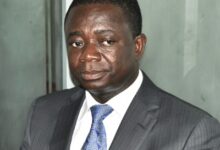
The government has reiterated its position not to totally ban the use of plastics in the country.
The Minister for Environment, Science Technology and Innovation, Professor Kwabena Frimpong-Boateng, reiterated government’s position when he commented on a statement made by the Member of Parliament for the Builsa South Constituency, Dr Clement Apaak, who wanted a national policy on plastics, which he said, had become a nuisance to the environment.
He said to think of banning plastics, issues including the health of the people, the economy and the environment needed to be considered.
“We are not in favour of wholesale ban. I think it will not be in the interest of our nation,” Prof Frimpong-Boateng declared on the floor of Parliament in Accra yesterday.
“Plastics are used in all areas of our economy including agriculture, farmers nurse their seedlings in plastics, in medicine, you have plastics everywhere for blood donation, for packaging of medicine, for sterilisation of equipment and so on. So wholesale ban is not in our interest,” he emphasised.
“I can imagine that, we can ban plastic carrier bags, straws, plastic cutlery, chewing gums, and plastics in cosmetics, among others. There are a lot of plastic products that do not affect our health and economy unduly. Those we can ban,” Prof. Frimpong-Boateng added.
He said, “Until an alternative product that can carry fluid, sachet water plastics, and others alike cannot be banned.”
The government, Prof. Frimpong-Boateng said, was working on a bill, which would soon be presented to the House for consideration, so as to deal with the plastic menace in the country.
In managing the menace of plastics, however, he said government was in favour of reducing the risk of plastics by recycling and recovering the plastics.
In that regard, Prof. Frimpong-Boateng said, the Ministry of Environment, Science, Technology and Innovation, had empowered two Ghanaian firms to convert plastics into petrol and diesel and pavement stones.
Dr Apaak, in his statement, decried the menace of plastics, which is directly and indirectly affecting living organisms throughout the ecosystem including an increasing high impact on marine life at macro and micro scale.
Proposing a solution to the plastic menace, the Builsa South lawmaker said an effective plastic policy must be supported by an effective waste management system to address the plastic conundrum.
“Mr Speaker, we can all take action on plastic waste as citizens, government, businesses and manufacturers. True, the challenge is multifaceted and so must the solution vary,” he stated.
Prof. Aaron Mike Oquaye, the Speaker of Parliament, has thus referred the statement to the Environment Committee for action.
BY JULIUS YAO PETETSI






